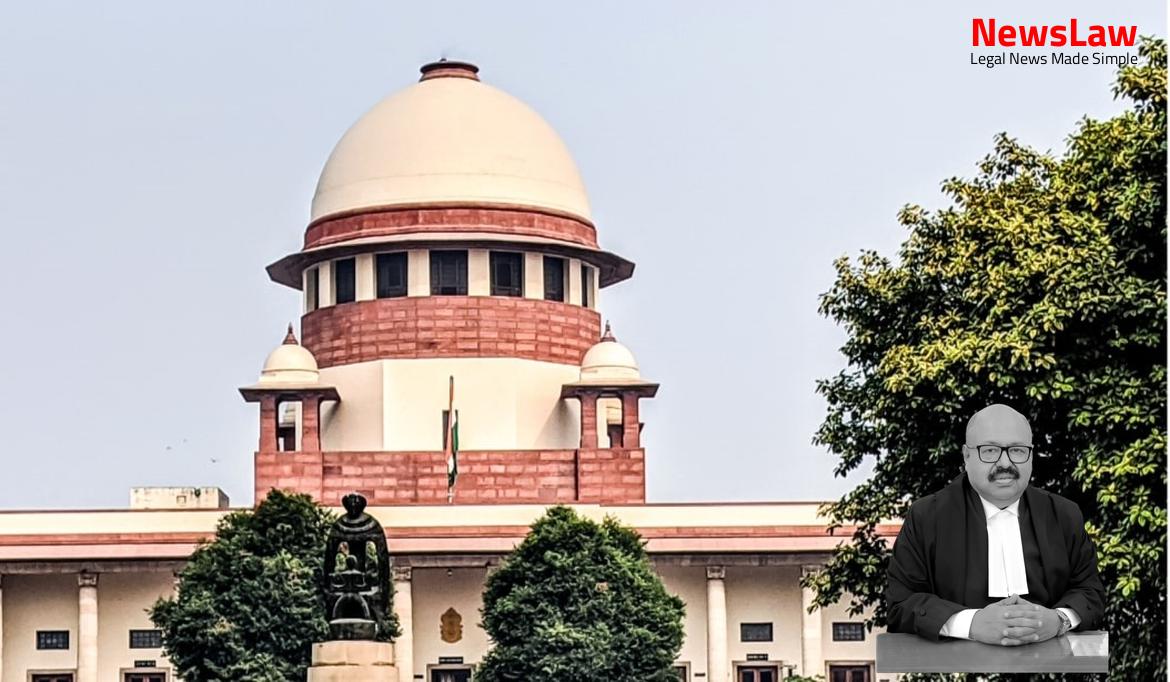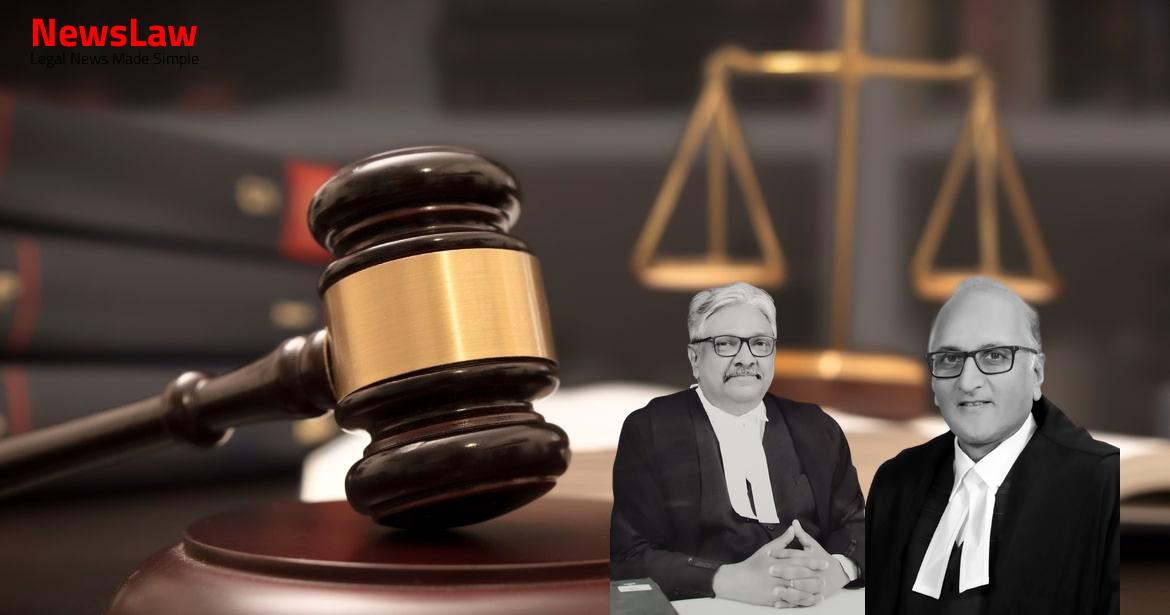In a significant legal verdict, the Supreme Court of India has addressed the complex interplay between Presidential Orders and Caste Certificates. This case, involving a dispute over the validity of Caste Certificates issued by the Government of Karnataka, has far-reaching implications. Stay tuned for a deep dive into the judgment and its impact on the rights of individuals affected by caste-based classifications.
Facts
- The Government of Karnataka issued a circular in 2002 providing protection to individuals employed in State services who obtained Caste Certificates based on synonymous castes.
- These individuals were to be treated as appointed under the General Merit category, not eligible for SC/ST benefits but could claim benefits under respective Backward Classes.
- Caste Certificates of appellants were cancelled by the District Caste Verification Committee.
- Appellants challenged termination notices from their employer, leading to their services being threatened to be terminated.
- A subsequent circular in 2003 extended benefits to various communities including Kotegara, Kotekshathriya, and others who obtained Caste Certificates as per earlier circulars.
- Criminal proceedings against some appellants were quashed by the High Court.
- State Government cannot amend SCs/STs lists, only through an Act of Parliament as per the Constitution.
- Additional Director General of Police instructed termination of appellants’ services on grounds of fake Caste Certificates.
- The Division Bench of the High Court dismissed the intra-Court appeals.
- The appellants were aggrieved by the dismissal of their writ petitions and preferred intra-Court writ appeals before the Division Bench.
- A batch of appeals by special leave has been filed to challenge the decisions of the Division Bench of the High Court of Karnataka.
Also Read: Judgment on School Closure Reimbursement Dispute: DSGMC vs NDMC
Arguments
- Learned counsel for the petitioners argued that the Caste Certificates held by the appellants cannot be considered false or fake as they were validly issued by the Competent Authority.
- The counsel highlighted that the Ministry of Finance, Government of India, had endorsed the circulars issued by the Government of Karnataka in 2002 and 2003, providing protection to individuals with Caste Certificates based on pre-existing circulars from the State.
- The Ministry of Finance had also issued directions to State Bank of Mysore in 2005 regarding the treatment of employees whose caste certificates were no longer valid.
- The counsel emphasized that the subsequent Office Memorandum issued by the Ministry of Social Justice and Empowerment in 2013 should not be applied retrospectively to the appellants’ case.
- It was argued that the appellants never misrepresented their caste status and the contentious certificates were issued following due legal processes.
- The counsel contended that the Karnataka High Court erred in denying relief to the appellants by relying on a judgment that was not applicable to the current situation.
- The counsel urged the Court to set aside the impugned orders and protect the services of the appellants based on the circulars and communications from the Government.
- On the other hand, the counsel for the respondents argued that the appellants obtained employment based on false Caste Certificates and thus were not entitled to protection.
- They asserted that the Karnataka circulars only applied to individuals in State services, not to those employed by the Central Government or its undertakings.
- The respondents stressed that the appellants, belonging to synonymous castes not mentioned in Karnataka’s Scheduled Castes list, cannot claim the benefits of Scheduled Caste category.
- Overall, the arguments revolved around the validity and applicability of the Caste Certificates, the scope of government circulars, and the entitlement of the appellants to protection of their services.
- The controversy is covered by the Constitution Bench judgment in the Milind case.
- States do not have the power to amend Presidential Orders under Article 341.
- Power to amend Presidential Orders is exclusively vested in Parliament.
- The appellants were rightly denied relief by the Division Bench of Karnataka High Court.
- Appellants cannot claim protection of their services obtained based on false Caste Certificates.
Also Read: Equality in Employment: Smt. K.M. Vaghela vs. Department of Telecommunication
Analysis
- Allowing State Governments or courts to hold inquiries on whether a caste or tribe should be included in the Schedule of the Presidential Order can lead to problems.
- Courts cannot expand jurisdiction to determine inclusion in the Entries of the Presidential Orders under Articles 341 and 342.
- The power to include or exclude castes or tribes in the Presidential Order is exclusively vested in Parliament.
- Courts cannot alter or amend the Presidential Orders as it is the sole jurisdiction of Parliament under Articles 341 and 342.
- The Office Memorandum issued on 8 July, 2013, heavily relied upon by the respondents, only referred to the Government circular dated 11 March, 2002, excluding certain castes from protection.
- The Government of Karnataka’s circular dated 29 March, 2003, which extended protection to various castes, including those excluded from the earlier circular, was not considered in the Office Memorandum.
- The appellants obtained their Caste Certificates under the Scheduled Castes category through due process of law and were later brought under the unreserved category from 12 March 1987.
- The communication dated 17 August, 2005, issued by the Ministry of Finance after the Government circular dated 29 March, 2003, further ratified the protection granted to the bank employees.
- Inclusion or exclusion from the list of Scheduled Castes can only be done through an Act of Parliament under Articles 341 and 342 of the Constitution of India.
- The Ministry of Finance’s communication dated 17 August, 2005, and subsequent ratification of the State’s decision held precedence over the Office Memorandum dated 8 July, 2013.
- The Caste Certificates issued based on the erroneous inclusion list by the State Government were not deemed valid or protected.
- The State does not have jurisdiction to modify the Presential Orders issued under Article 341 of the Indian Constitution.
- The appellants’ services were protected, despite their Caste Certificates being deemed invalid and no entitlement to future benefits under the reserved category.
- Reference to the case of Milind where the judgment saved the services of the respondents by limiting the State’s power to amend the Presidential Order.
- The appellant raised a significant contention that was not adequately addressed by the respondent-HAL in their counter affidavit.
- The proposed action of the respondent banks/undertakings in issuing notice(s) to the appellants to show cause for potential service termination has been quashed.
- The impugned judgments rendered by the Division Bench are invalidated as a result of the above decision.
Also Read: Landmark Judgement by the Supreme Court: Case between KECML and KPCL
Decision
- Pending application(s) shall stand disposed of
- No costs are awarded
- The pending applications do not stand to scrutiny and are quashed and set aside
- The appeals are allowed
Case Title: K. NIRMALA Vs. CANARA BANK (2024 INSC 634)
Case Number: C.A. No.-009916-009920 – 2024



